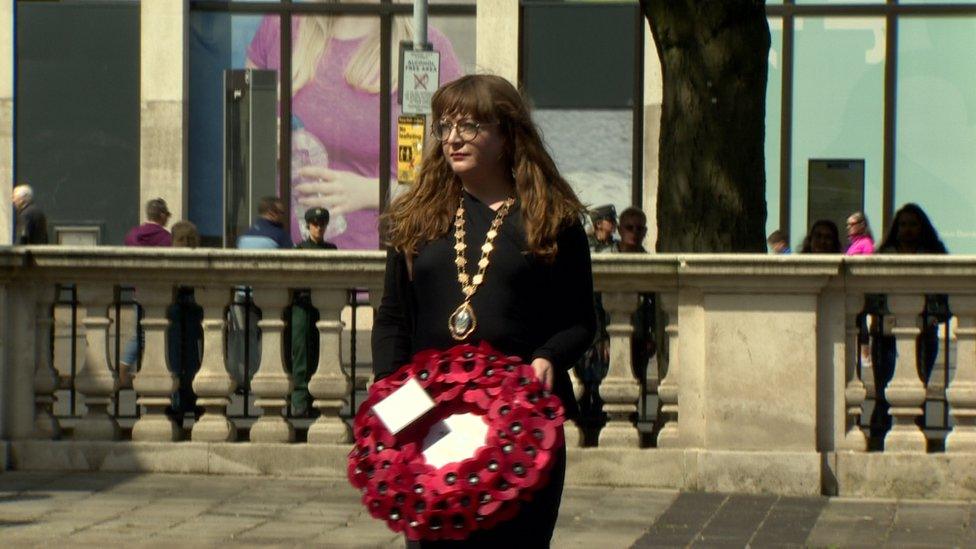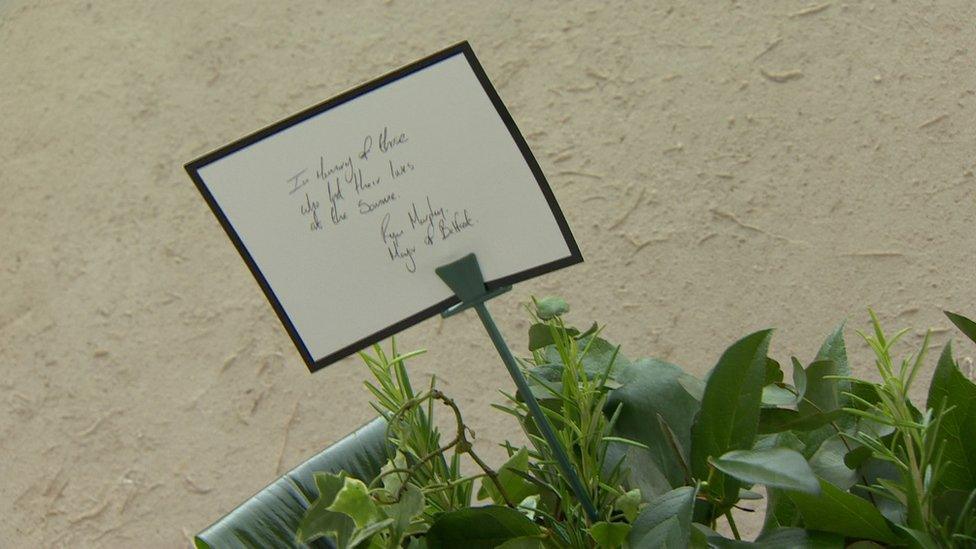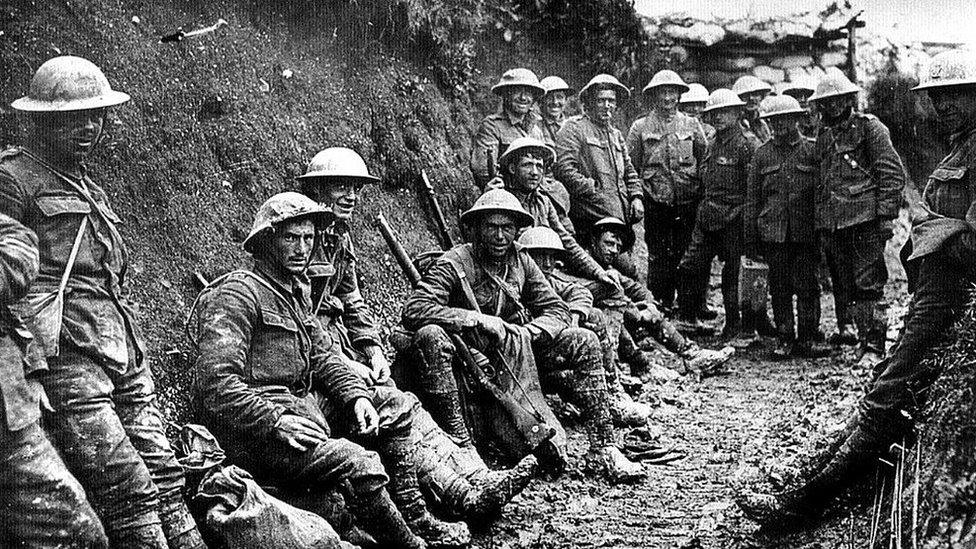First World War: Events take place to mark Somme anniversary
- Published

Áine Groogan said it was important to remember those who died at the Battle of the Somme
Wreaths have been laid at Belfast City Hall to mark the 107th anniversary of the start of the Battle of the Somme.
The city's deputy lord mayor, Áine Groogan, was among those to take part in the ceremony at the Cenotaph.
Thousands of soldiers from across Ireland took part in the First World War battle in France, which began on 1 July 1916.
Earlier on Saturday, Lord Mayor Ryan Murphy, from Sinn Féin, laid a laurel wreath.
In a social media post, external, his party's vice-president Michelle O'Neill said: "We remember all those who lost their lives, and in particular pay our respects to the thousands of people from across this island who died."
Former Stormont minister Edwin Poots, of the Democratic Unionist Party, took part in the main ceremony and said it was important to remember what happened.
"Five thousand young men gave their lives this day 107 years ago and all in all there were 33,000 from Ireland, from the Ulster Division and the 16th Irish Division," he said.
"It's important to recognise that those people didn't do that in vain."
Wreaths were also laid during events across Northern Ireland, including in Bangor, County Down, and Portadown, County Armagh.

Sinn Féin Lord Mayor Ryan Murphy laid a laurel wreath at the Cenotaph
Áine Groogan said it was "incredibly important to recognise their sacrifice".
"As a society still living with conflict, it's important to always keep an eye on the past - to learn from it and learn from it," she added.
"I represent all people across Belfast and I know this is an important event for many of them."
The Northern Ireland Office was represented at the service by its director-general Dominic Wilson.
Allow X content?
This article contains content provided by X. We ask for your permission before anything is loaded, as they may be using cookies and other technologies. You may want to read X’s cookie policy, external and privacy policy, external before accepting. To view this content choose ‘accept and continue’.

Nearly 20,000 British troops were killed on a single day at the Battle of the Somme in 1916
A total of 19,240 British troops were killed within 24 hours at the start of the battle, on what was the Army's bloodiest day.
Almost a tenth of those who died that day were from the 36th Ulster Division.
The battle ended on 18 November 1916.
A number of parades are also taking place on Saturday to mark the anniversary.